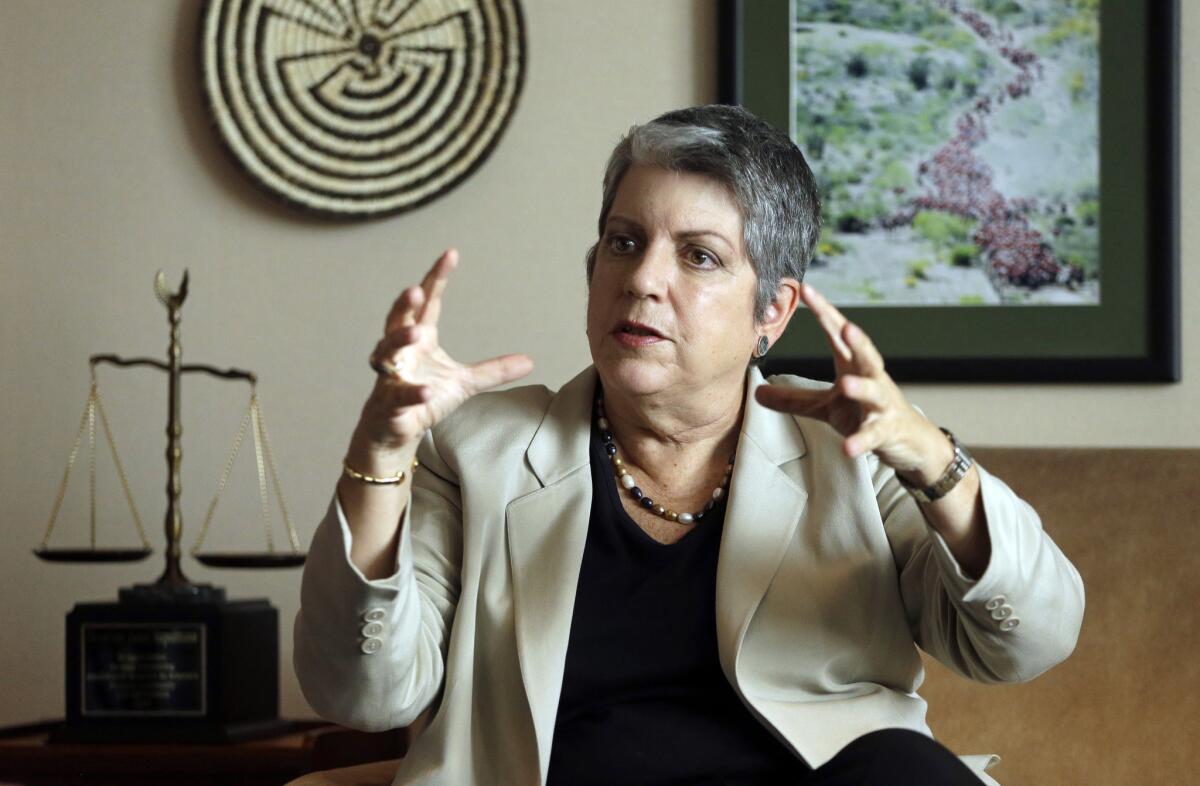Op-Ed: UC leaders tone-deaf in their reliance on tuition hikes

After years of cuts to higher education, recent state budgets have included a substantial reinvestment in public universities. But that increased funding has done little to cure the tone-deafness of the University of California’s leaders.
Their proposal for new tuition hikes would put the state’s public universities, which have been a crucial steppingstone to higher earnings and fulfilling careers for millions of Californians, out of reach for too many families.
Moreover, at the same time UC leaders are threatening to saddle students with another round of tuition hikes, they have awarded pay hikes of up to 20% to a small group of top administrators who were already making hundreds of thousands of dollars a year. And they continue to bristle at any suggestion that the university might be able to save money by being run more efficiently.
The current state budget dedicates $3 billion to the University of California, an increase of $142 million, or 5%, over the previous year. This comes on top of a $125-million increase in ongoing funding for the 2013-14 budget year. These funding increases were predicated on an expectation that they would enable the university to freeze student fees, which had doubled over the previous decade.
Instead, the Board of Regents will consider new fee hikes proposed by the UC administration that would bring tuition to more than $15,500 by the 2019-2020 school year. The board should reject the proposal.
During the budget crisis precipitated by the Great Recession, the university did take a massive hit. The state cut funding to the UC system by $800 million. To make up for the cuts and to fund increased financial aid, the Board of Regents increased student fees by more than $1.2 billion. In the end, the entire shortfall was backfilled by tuition hikes on students.
Today, after years of difficult budget cuts in Sacramento and the passage of Proposition 30 by California voters, the state budget is back in the black. Additionally, the Legislature recently voted to establish new middle-class scholarships to help families who have been priced out of our public higher education system. But more needs to be done.
Students continue to take on tremendous debt to get a college education. New figures from the Institute for College Access and Success show the average graduate owes more than $30,000 by the time he or she obtains a degree.
We must do more to ensure that the next generation of Californians does not enter the workforce saddled with crippling debt. In today’s increasingly technical and knowledge-based economy, few things deserve greater public investment than higher education. California’s leaders should continue to increase funding for the state’s public colleges and universities, particularly as the economy continues to recover. We should ensure our higher education institutions are the greatest and most innovative in the world.
But before hiking tuition, university leaders should look first to see where costs might be cut in ways consistent with the goals outlined in the state’s Master Plan for Higher Education. Sadly, that isn’t happening in any kind of comprehensive way. Instead, university leaders have resorted to tactics that are as shopworn as they are cynical, treating students as hostages in their budget negotiations.
It was disappointing to see this overt threat receive formal support from UC President Janet Napolitano. We had hoped that under her leadership, the University of California would adopt different negotiating strategies and engage in a serious discussion about long-term funding for higher education in California. Many of us who supported Napolitano’s hiring saw in the former governor and head of the Homeland Security Agency the kind of politically savvy leader the university needed.
Yes, Sacramento should be doing more to ensure that higher education is a priority, particularly as the state economy stabilizes and continues to thrive. But the leaders of California’s public universities should also be doing more to ensure this entire burden is not placed on the shoulders of students.
John A. Pérez (D-Los Angeles) is speaker emeritus of the California Assembly and a newly appointed member of the UC Board of Regents. Nathan Fletcher is a former assemblyman and a professor of practice in political science at UC San Diego.
Follow the Opinion section on Twitter @latimesopinion
More to Read
A cure for the common opinion
Get thought-provoking perspectives with our weekly newsletter.
You may occasionally receive promotional content from the Los Angeles Times.






